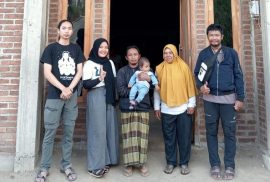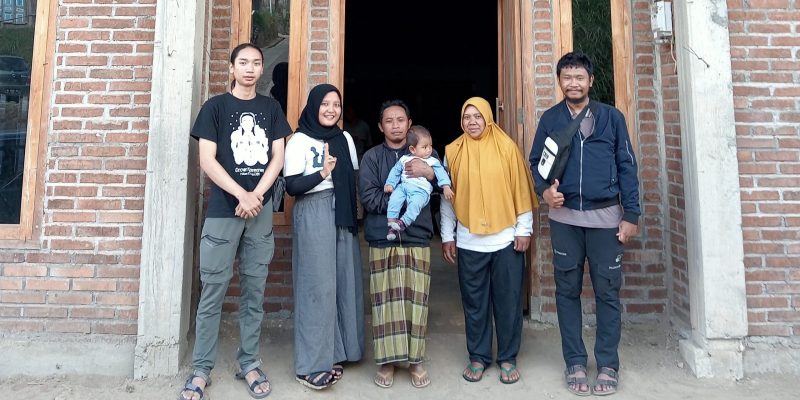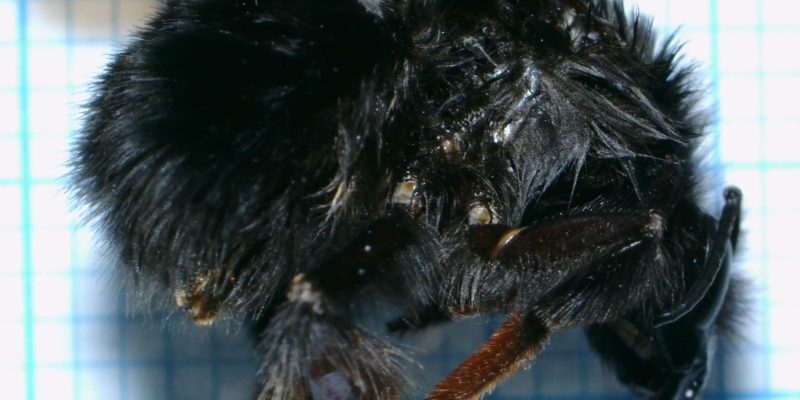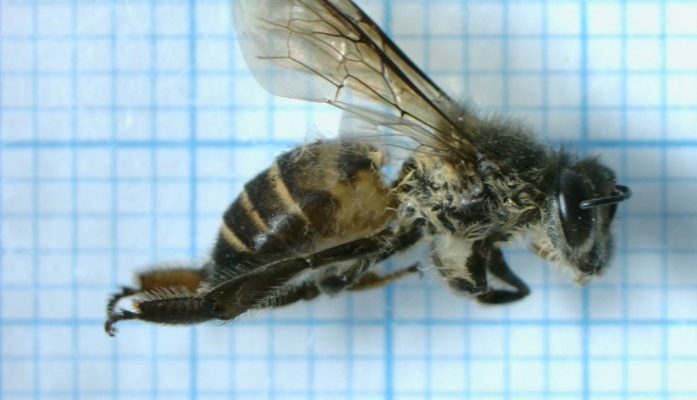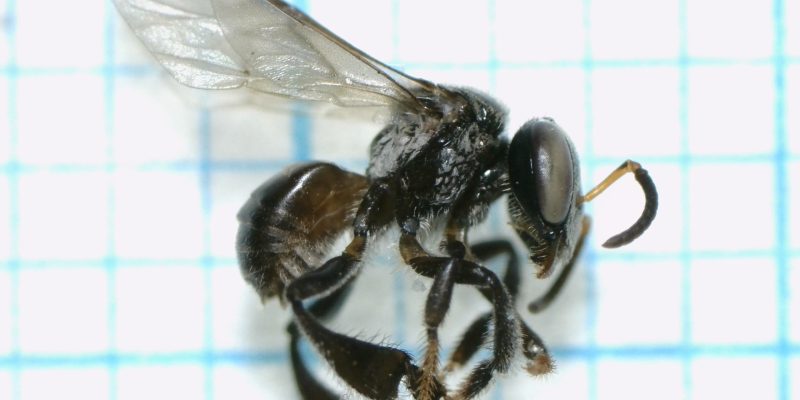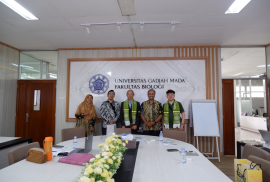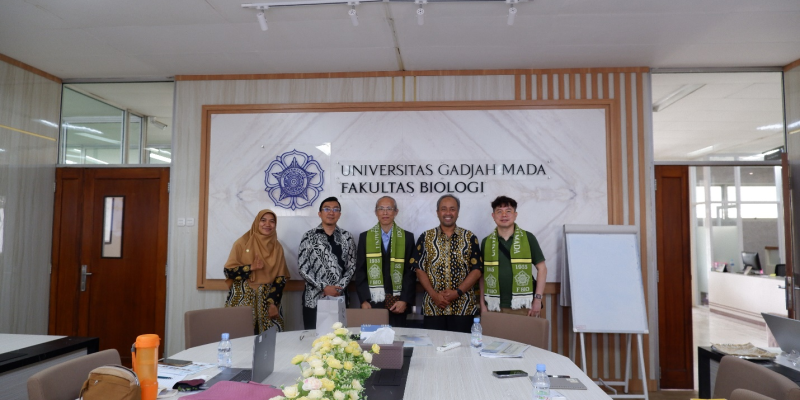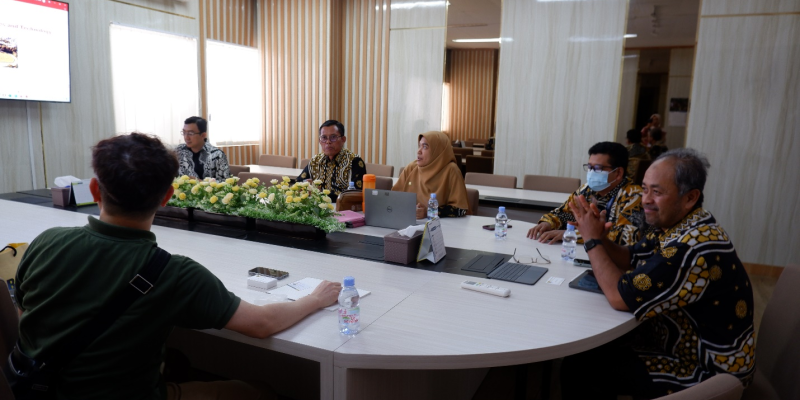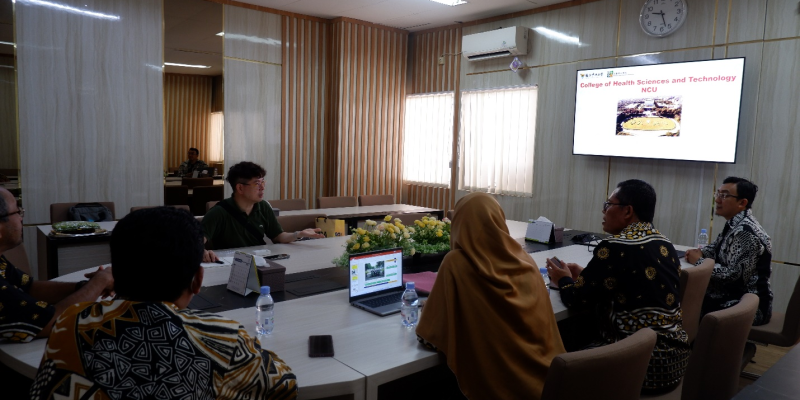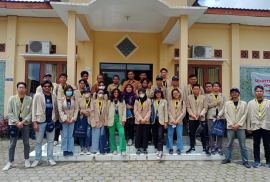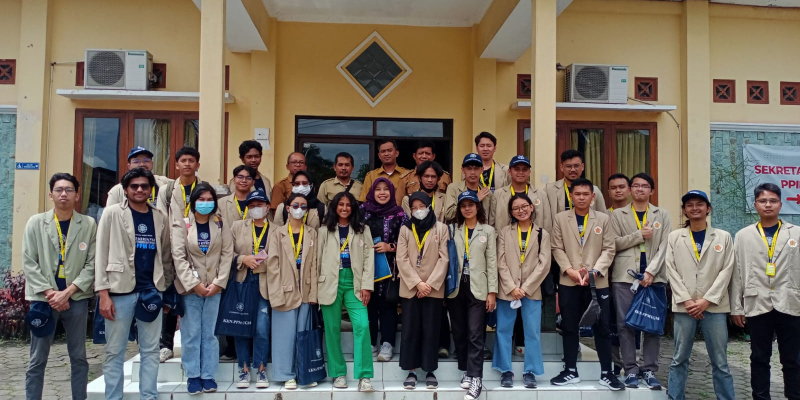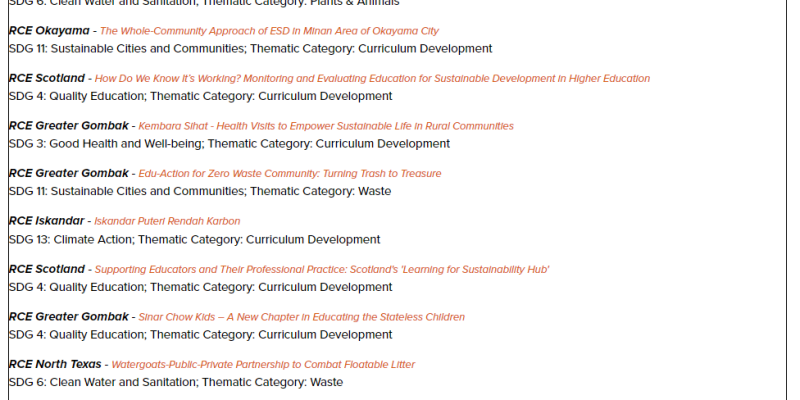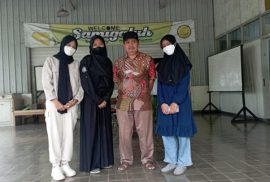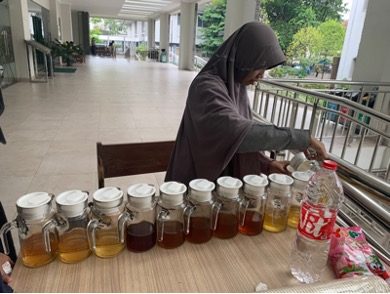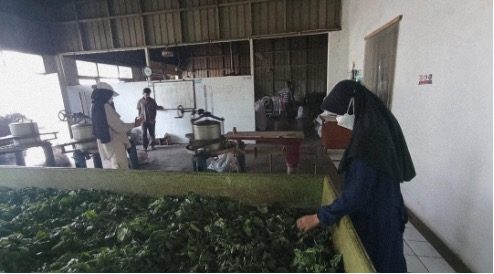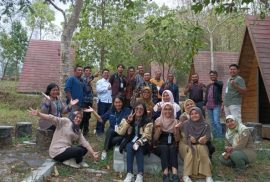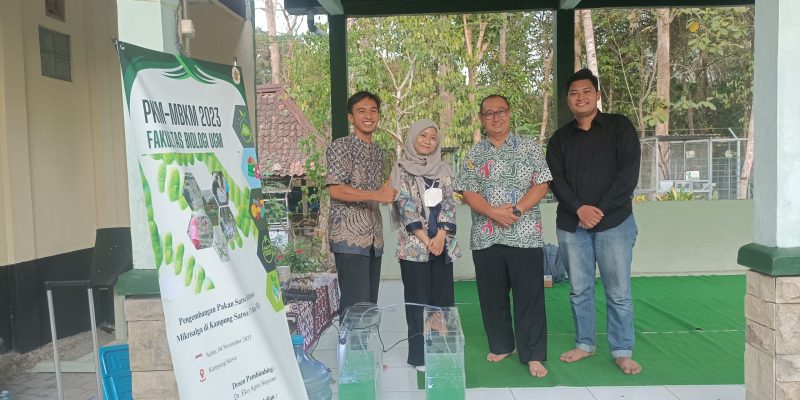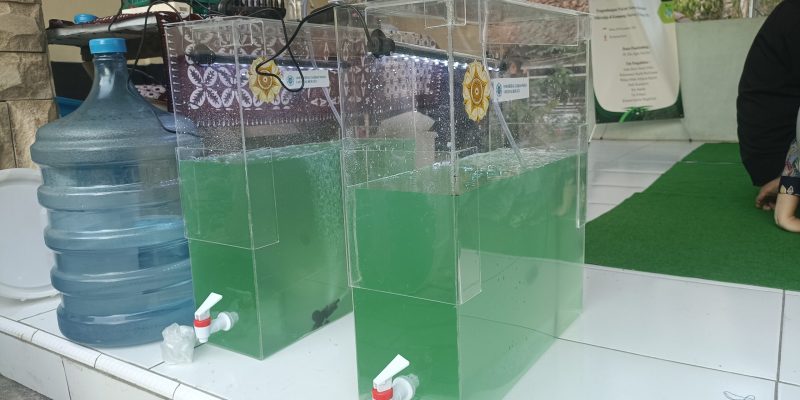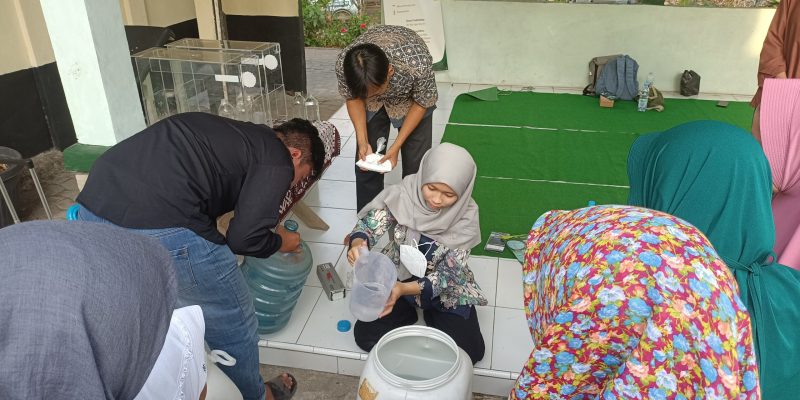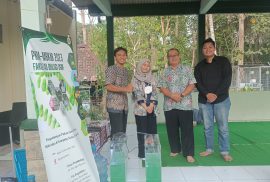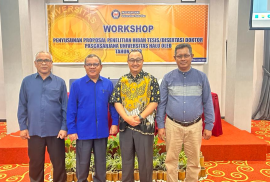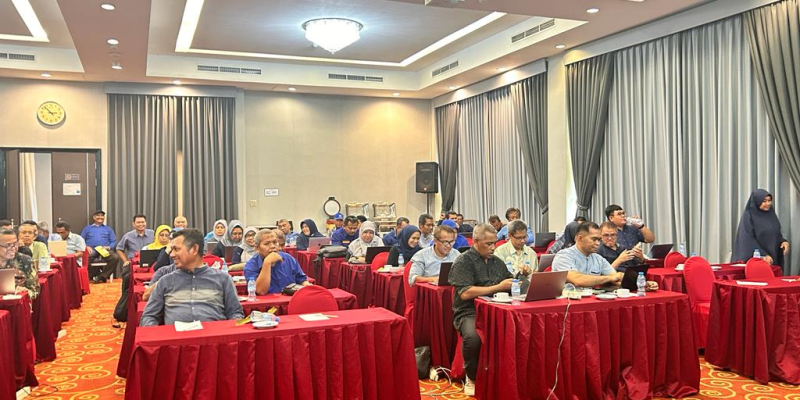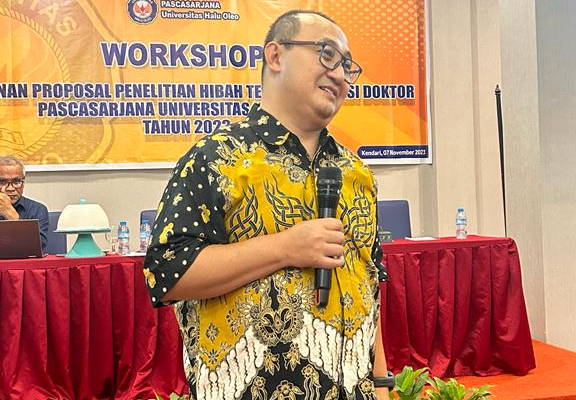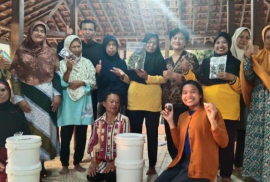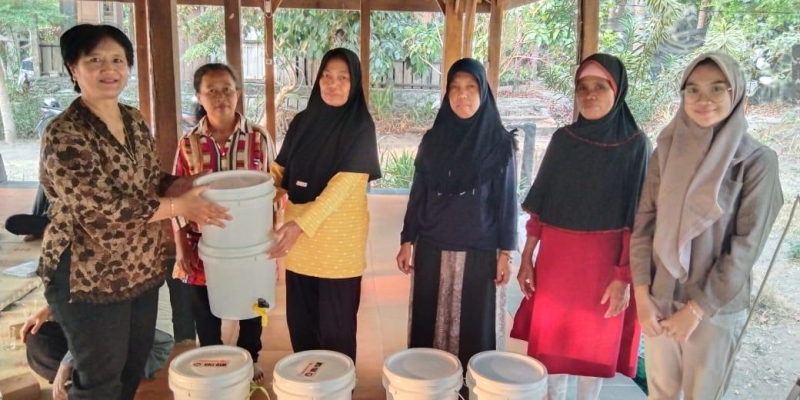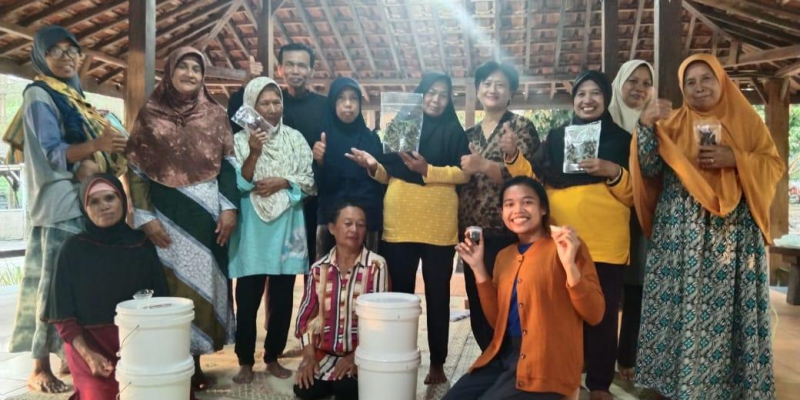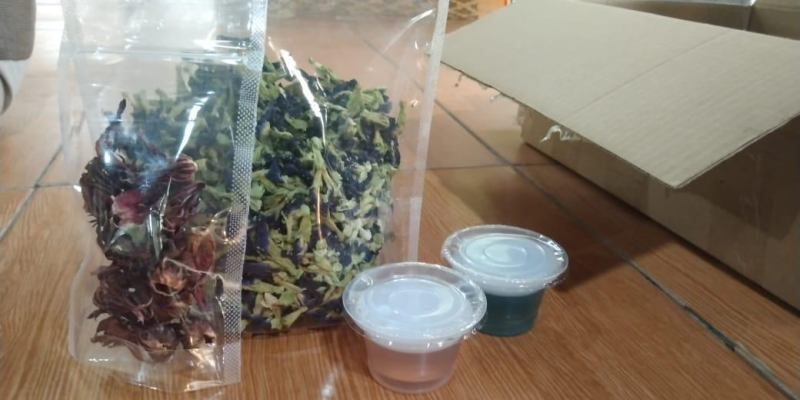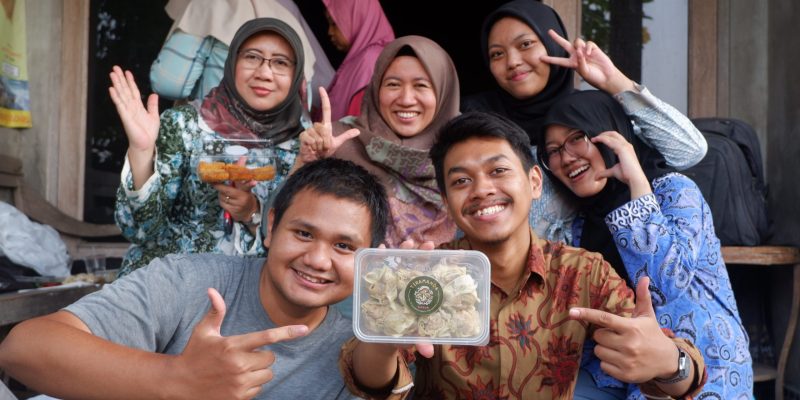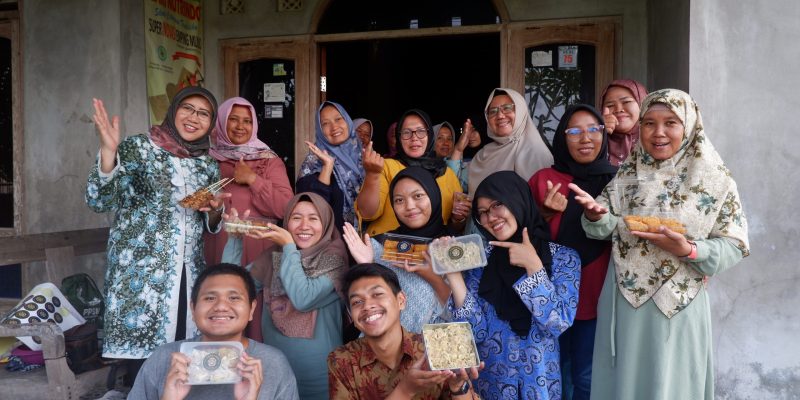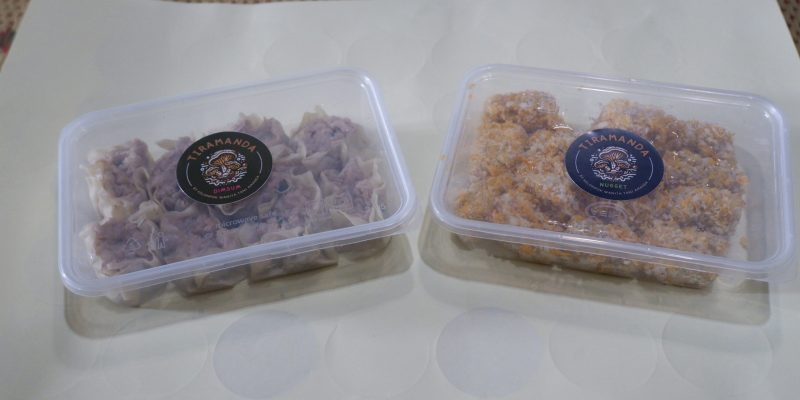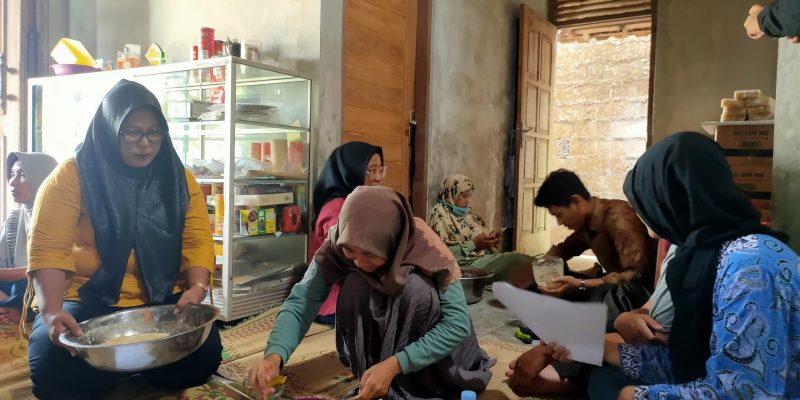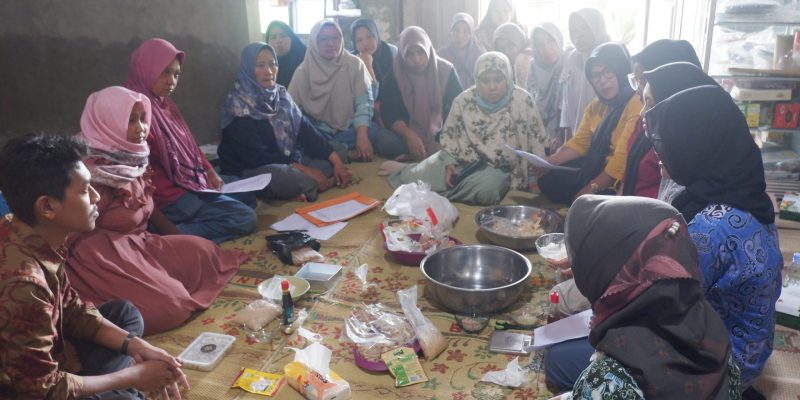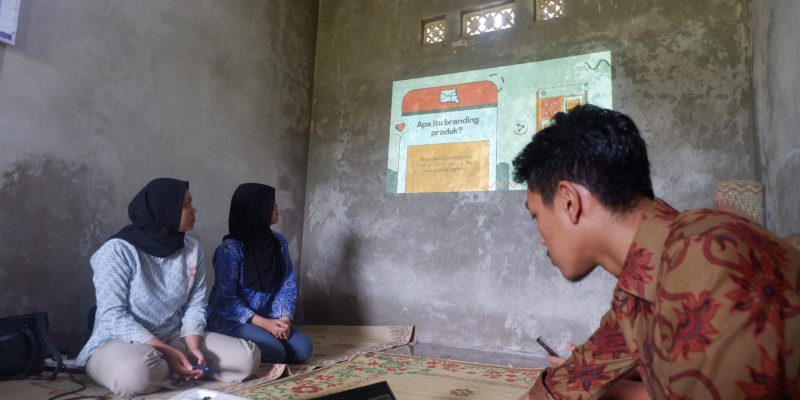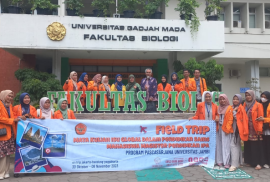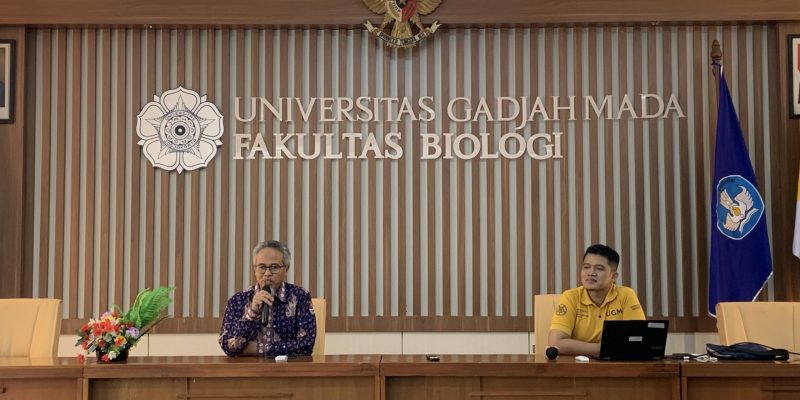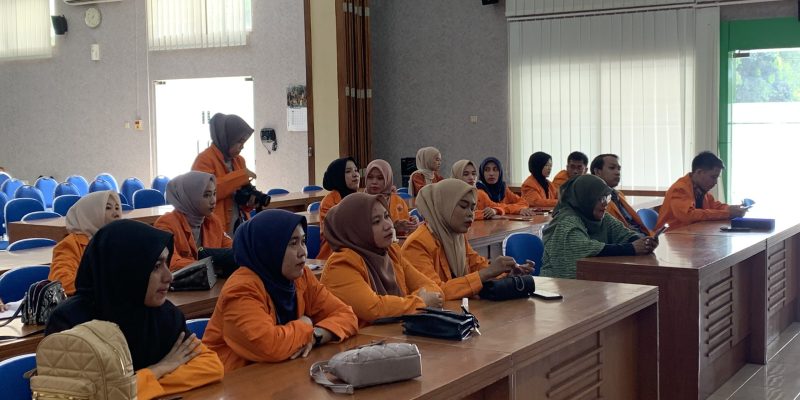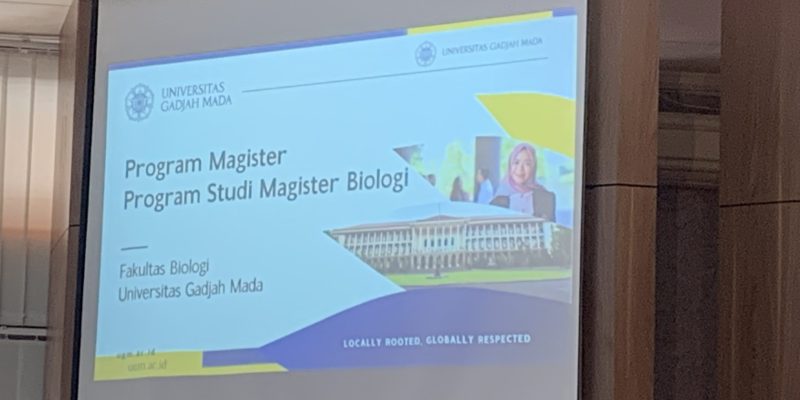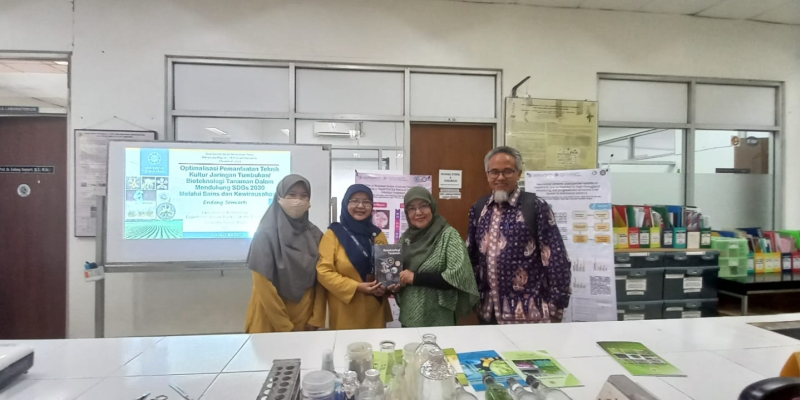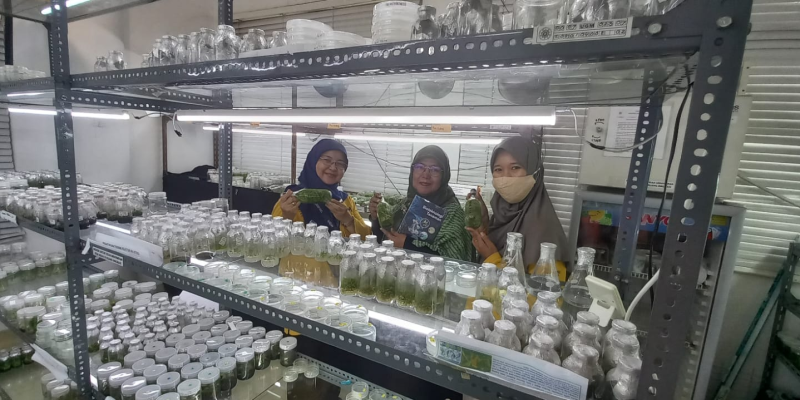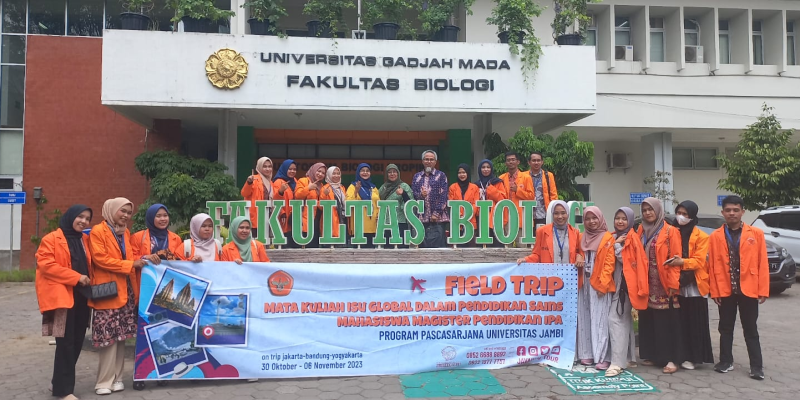[MBKM] Yogyakarta, 9 November 2023, In efforts to support research and the development of Indonesia’s natural wealth, the MBKM research team has successfully completed further research in Mount Merbabu National Park (TNGMb) from June 2-4, 2023. The research led by Drs. Hari Purwanto, M.P., Ph.D., along with Aqil Abyan Rahman, Cornelius Devito Deva Pramana Atmaja, and Nadiva Adelia Nurdin. This research was also assisted by R. Hanindyo Adi, S.Si., M.Si., a Ph.D. student in the Entomology laboratory at the Faculty of Biology, UGM.
This research activity was a continuation of previous explorations conducted in November 2022, May 2023, and June 2023. The research team successfully identified three tribes of corbiculate bees, namely Bombini (mountain bumblebees), Apini (honey bees), and Meliponini (stingless bees), distributed in the TNGMb Pakis Resort area across 15 grids with an elevation range of 737-2496 meters above sea level. Morphological character analysis was conducted on the three tribes of corbiculate bees, revealing the species found to be Bombus rufipes, Apis cerana, and Tetragonula laeviceps. Based on molecular analysis using the 16s primer on samples from TNGMb, it was found that B. rufipes is closely related to B. eximius from Thailand, A. cerana is closely related to A. cerana from Japan, and T. laeviceps is closely related to T. laeviceps from Yogyakarta. Molecular analysis still requires more comprehensive comparisons. Morphometric-geometric analysis is currently being conducted on the samples to understand how differences in elevation affect bee adaptation, especially in wing size and shape.
The Merbabu Bee MBKM research team expresses gratitude to the Dean and Vice Dean for Research, Community Service,Collaboration and Alumni Affairs, Faculty of Biology, UGM, for providing permission, facilities, and funding for this activity. We also thank Ir. Junita Parjanti, M.T., Head of TNGMb Office, Mrs. Ekowati, our guide at the Office of TNGMb, Mr. Wawan, Head of Pakis Resort, along with the team, and Mr. Jumari and the TNGMb Partner Community team who accompanied us during the exploration in Pakis Resort.
Yogyakarta, 7 November 2023 – Faculty of Biology UGM received a visit from a delegation from National Central University (NCU), Taiwan, Prof. Adam Huang from the Department of Biomedical Sciences and Engineering, and Prof. Fu-Guo Robert Liu from the Department of Life Sciences. The visit was received in the KPTU Meeting Room, Faculty of Biology UGM by Dr. Bambang Retnoaji, M.Sc. as Vice Dean for Academic and Student Affairs, Dr. Slamet Widiyanto, M.Sc. as Vice Dean for Finance, Assets and Human Resources Affairs, Sukirno, Ph.D. as Head of the Undergraduate Study Program, Nur Indah Septriani, Ph.D. as Head of the Office of International Affairs Faculty of Biology, and Tyas Ikhsan Hikmawan, Ph.D. as Secretary of the Office of International Affairs, Faculty of Biology UGM.
NCU’s visit to Universitas Gadjah Mada this time was aimed at recruiting UGM students for interview sessions for their international programs in collaboration with UGM. During his visit to the Faculty of Biology, Prof. Adam and Prof. Fu-Guo explained regarding their respective departments and the collaboration that could be initiated with UGM, especially with the Faculty of Biology.
The Faculty of Biology has collaborated with NCU through student interviews and a mini symposium which was held last Tuesday (12/9), together with the National Health and Research Institute (NHRI), Taiwan. This meeting specifically discussed the initiation of Double Degrees for bachelor’s, master’s and doctoral programs, especially with the NCU Department of Life Sciences. The Faculty of Biology also conveyed the potential for collaboration in International Conference (ICBS) activities and International Summer Courses which are routinely held by the Faculty of Biology. Prof. Fu-Guo welcomes the initiation of this collaboration and hopes that it can become a good bridge in improving education at both institutions.
The collaboration between the Faculty of Biology and NCU in implementing the Mini Symposium and Scholarship Interview shows the commitment of the Faculty of Biology in its role in sustainable development in accordance with the Sustainable Development Goals (SDGs), namely healthy living (SDG 3), inclusive quality education for all groups (SDG 4), and partnership in achieving sustainable goals (SDG 17).
Proposing an idea entitled “Smart Integrated Education System of Agrotourism Community Services”, lecturer at the Faculty of Biology UGM, Ganies Riza Aristya, Ph.D., got the Outstanding Flagship Project award at the 2023 RCE Awards for Innovative Projects on Education for Sustainable Development (ESD). The RCE Awards are appreciation award for programs and projects that focus on education for sustainable development. This contribution is a concrete manifestation of overcoming the challenges of sustainable development in the region. Recognized programs are programs that involve the transformation of teaching and research and demonstrate active contribution of society, including the involvement of partners and stakeholders.
Focusing on the development of Sendangsari Village and Sidomulyo Village, Pengasih, Kulon Progo, Ganies and the KKN (Community Service) Team UGM that she coached highlighted the agricultural potential of these two villages in building a Tourism Village based on sustainable agriculture. This potential is also a challenge, where potential local products, in terms of quality and quantity, have experienced a decline after the COVID-19 pandemic. Technology and educational support and the development of MSME products are in the spotlight in developing villages whose communities still depend on the agricultural sector. This is in line with sustainable development goals (SDGs) in increasing decent work and community economic growth (SDG 8). Ganies also highlighted the involvement of Women Farmer Groups (KWT) which play an active role in processing and managing agricultural products, supporting gender equality in village economic development (SDG 5).
Agrotourism is a concept that combines agricultural activities with environmentally friendly tourism and contributes to the economy of the local community within it. Ganies applies the Smart Integrated Education System in agrotourism development, seeking to raise the potential of local communities through various education and training programs (SDG 4), community and stakeholder involvement, and the use of innovative technology. In addition, this concept also supports awareness of environmental conservation and preservation and sustainable agriculture, both for local communities and tourists (SDG 14 and 15).
It is hoped that this idea can create a sustainable agrotourism sector, increase awareness of environmental conservation while promoting local culture and providing economic benefits to local communities.
The Team of Biology students from Faculty of Biology Universitas Gadjah Mada collaborated with PT Pagilaran on the development of herbal tea made from the leaves of Aquilaria malaccensis, an agarwood species. This collaboration, conducted from March 2023 to November 2023, was part of the Independent Learning Independent Campus Program (MBKM). The team consists of Atikah Nurunnissa’, Damar Nirma Wati, and Listia Dewi Amaliawati, under the guidance of Drs. Tri Rini Nuringtyas, S.Si., M.Sc., and Tri Wahyuni, S.TP. from PT. Pagilaran.
The herbal tea development activities commenced with a discussion at the PT Pagilaran Kotabaru headquarters, located at Jl. Faridan M. Noto, No. 11, Kotabaru, Kec. Gondokusuman, Yogyakarta. Subsequently, the students visited the PT Pagilaran Samigaluh branch on 13-14 March 2023, focusing on the production of green and black tea. During the visit, the team were guided by Mr. Waridi through the entire tea-making process, starting from harvesting, withering, fermentation, to drying. Following the visit, the team formulated agarwood leaves with other ingredients to create various herbal tea blends: 1) Agarwood leaves, black tea, red ginger; 2) Agarwood leaves, green tea, lemon; and 3) Agarwood leaves, green tea, rosella. Each formulation had different concentrations, such as Agarwood leaves: Black tea / Green tea: Natural ingredients (1: 0.75: 0.25), (1: 0.75: 0.5), and (1: 0.75: 0.75). Subsequently, the students conducted organoleptic tests to determine the preferred formulation and concentration of herbal tea. They also performed extractions using 80% ethanol, followed by UV-Scanning to identify the compound profile of agarwood herbal tea with antioxidant, antidiabetic, and antiobesity activities.The UV-Scanning results and bioactivity analysis using PASS Online revealed that all three formulations possessed potential bioactivity, making them suitable for health-supporting beverages.
It is anticipated that this collaboration will provide valuable insights for the students throughout their research process, expanding possibilities for drug development from natural resources, particularly agarwood leaf extracts. This activity is expected to strengthen public understanding of Indonesia’s natural wealth and its potential in pharmaceutical development, inspiring the creation of innovative solutions to enhance human health and well-being. [Author: Damar Nirma Wati]
Lecturer from Faculty of Biology, Laboratory of Ecology and Conservation, Akbar Reza, M.Sc., actively participates as a facilitator in the training of novice conservation cadres conducted by the Mount Merapi National Park. This activity is part of the efforts of Mount Merapi National Park Authority to encourage active participation of the community in preserving the natural environment and ecosystem in the area. It is hoped that similar activities will continue to be held periodically to maintain the continuity of awareness and community participation in environmental conservation efforts.
This activity focuses on sharing experiences and strengthening the understanding of the Basics of Ecology for 20 cadres consisting of various participants from the surrounding community, including teachers from elementary, junior high, and senior high schools, members of SAKA (Scout Rangers), and the general public around the National Park area, including from Sleman, Boyolali, Magelang, and Klaten. The event took place at Kalikuning Park on October 30 and 31, 2023, aimed to provide in-depth insights into the importance of ecology in maintaining environmental sustainability, especially in the Mount Merapi area, which is rich in natural resources. Through discussions and field practices, the participants actively engaged in the sessions. Furthermore, the participants actively shared their experiences in the context of ecology and conservation in the National Park area.
Akbar Reza expressed his hope that this event will be held regularly, as it is expected to encourage collaboration between academics, area managers, and the community in preserving the ecosystem within and around the National Park. This is because the community plays a key role in long-term conservation efforts. With the success of this activity, it is hoped that it will enhance collaboration between the community, academics, and area managers in environmental conservation efforts, as a tangible expression of concern for the sustainability of nature, which is a valuable legacy for future generations.
One of a series of activities in the PkM-MBKM program at the Faculty of Biology UGM was held on Saturday, November 4 2023 at Kampung Satwa, Kedung Banteng, Sumberagung, Moyudan, Sleman. This activity was carried out by Microalgae Research Group, chaired by Dr. Eko Agus Suyono, M.App.Sc. with three student members, Aulia Setyo Nurul Hida, Wildan Hilmi Azharul Hakim, and Muhammad Naufal Azzamrafif. This activity takes place from 15.30 to 17.00 WIB. This activity is a follow-up activity after carrying out an evaluation of the service program that ran in the previous year. This year’s Microalgae Research community service program has the big theme “Development of Microalgae-Based Animal Feed in Animal Villages (Phase III)” with the focus no longer being on large-scale product harvesting, but focusing on introducing microalgae to ordinary people with an interesting cultivation and maintenance system. The easy one.
This visit was carried out with the aim of introducing a simple photobioreactor as an installation for culturing microalgae as well as direct practice of culturing microalgae in a photobioreactor. Microalgae cultivation in a photobioreactor was applied using the Spirulina sp. using inoculant derived from the stock culture of the Faculty of Biology UGM Biotechnology Laboratory. After carrying out direct cultivation practices, it is hoped that people will be able to continue cultivating microalgae independently. Apart from aiming to introduce photobioreactors to the community in Kampung Satwa, this activity also aims to increase interest and understanding of the general public, both residents of Kampung Satwa, and tourists who visit Kampung Satwa regarding microalgae culture and its various benefits. It is also hoped that this photobioreactor can become an icon to attract tourists to the Animal Village.
In order to increase the number of lecturer research proposals, the postgraduate program at Haluoleo University, Kendari held a Workshop on Writing Master’s Thesis Research Grant Proposals and Doctoral Dissertation Grants. This workshop was held on Tuesday, November 8 2023, with the aim of providing technical knowledge and skills for lecturers so they can write grant proposals well. Dr. Eko Agus Suyono, M.App.Sc. from the Faculty of Biology UGM were invited as speakers on the agenda.
This workshop was opened by the Director of Postgraduate Studies at Haluoleo University, Prof. Dr. Ir. Destiny Saali, M.Sc. and convey the research achievements and publications of Postgraduate Program lecturers. In his remarks, Prof. Takdir appealed to lecturers to immediately prepare proposals for the 2024 funding scheme. It is hoped that in 2024 and beyond, the number of proposals submitted and funded will increase, so that they can help Haluoleo University postgraduate students complete their studies.
The event continued with the presentation regarding strategies for preparing proposals for the Master’s Thesis Research Grant program and Doctoral Dissertation Research Grants for universities in the era of independent campuses by Dr. Eko Agus Suyono. In his presentation, he conveyed the importance of track records and research roadmaps from researchers as well as proposal writing strategies. “Making a proposal requires a clear track record and research roadmap as well as learning a lot from the experiences of other researchers. A good proposal is easy for other people to understand, even if they have different scientific backgrounds,” said Dr. Eko Agus Suyono.
The next session was a presentation regarding best practices for collaborative research with domestic and global partners by Prof. Analuddin, Ph.D. Vice Director for Academic Affairs of Postgraduate Programs, Haluoleo University. The material presented is experience in initiating and developing collaboration with partners so that our proposals have a better chance of getting funding.
After the material presentation session by the two speakers, the event continued with discussions and questions and answers as well as an introduction to the Faculty of Biology UGM Masters and Doctoral Program. Apart from that, there was also an introduction to the Biodiversity Curator Professional Program which is planned to be opened in 2024 at the Faculty of Biology UGM. The workshop was successful and smooth, attended by all lecturers from the Postgraduate Program at Haluoleo University, Kendari.
This workshop was also carried out to realize the 4th pillar of the SDGs, quality education by ensuring inclusive and equitable quality education and promoting lifelong learning opportunities for everyone as well as the 17th pillar of the SDGs, global cooperation to achieve sustainable goals. This goal aims to strengthen global cooperation in supporting national plans to achieve the SDGs targets.
In connection with the continuation of the Community Service Program – the Independent Learning Independent Campus (MBKM) 2023, the Faculty of Biology Universitas Gadjah Mada in Blotan hamlet, led by Prof. Dr. Kumala Dewi MSc.St along with students, Alfina Damayanti ( and Estherina Claudya Manurung, conducted an extension activity on natural food and Fabric Dyes as well as Organic waste processing using stacked bucket at The Blotan village hall on Thursday, October 2023 from 3.30 PM to 5.00 PM. The activity was attended by the head of PKK RT 01 along with 12 members.
The material was delivered by Prof. Dr. Kumala Dewi MSc.St. She explained the advantages and disadvantages of using synthetic dyes compared to natural dyes. The use of natural dyes, whether for food and beverages or for batik fabric coloring, supports the Sustainable Development Goals (SDGs), especially goal number 2, which aims to end hunger, achieve food security, improve nutrition, and promote sustainable agriculture. Natural dyes introduced in this session included butterfly pea flowers (Clitorea ternatea L) for blue color and roselle (Hibiscus sabdariffa L) which provides red color for food and beverages. Additionally, there are other types of plants that can be used for food coloring, such as turmeric, pandan leaves, and black rice. In addition to providing natural color, the use of infusions from butterfly pea flowers, roselle petals, and black rice can also support health as they contain beneficial compounds like anthocyanins and vitamin C, which act as antioxidants. By planting butterfly pea flowers, roselle, or other beneficial plants, the environment can also be enhanced. Regarding fabric dyeing, Prof. Kumala Dewi MSc.St explained that the leaves of the indigo plant (Indigofera tinctoria L), which belongs to the legume family, can be processed to produce Indican dye, which imparts a blue color to fabric. The use of natural dyes for fabric can also reduce water pollution, which often occurs around batik industries that use synthetic dyes. Planting Indigofera is easy, and this plant can be beneficial in improving soil fertility.
In addition to the explanation about natural dyes, the process of household organic waste processing to create liquid fertilizer using stacked buckets was also presented. This was done in an effort to support the resolution of the waste problem, which has been a trending issue recently due to household waste disposal sites being full. Proper separation of household waste needs to be carried out diligently by every household member. Organic waste can be collected in stacked buckets, and with the help of Hermetia illucens flies that lay eggs in the waste, maggots can consume the waste and produce liquid fertilizer as well as residual solid waste. Both can be used for vegetable fertilizer, whether planted in polybags or in the field. From previous analyses, liquid fertilizer from organic waste processing with stacked buckets and the assistance of black soldier fly maggots contains hormones and amino acids that are beneficial for promoting plant growth. In this counseling event, small agar-agar snacks were also served, colored with natural blue dye (from butterfly pea flowers) and red dye (from roselle). Additionally, five sets of stacked buckets were provided for practical use in household organic waste processing. The participants were very enthusiastic in responding to the counseling session, with several questions discussed. Those who received the stacked buckets will report on their usage through videos, as well as the liquid fertilizer products produced. From this counseling activity for the PKK mothers in Blotan hamlet, it is hoped that the role of women in supporting food security for families and environmental sustainability can be established and sustained.
On Saturday, November 4th, 2023, the team of Community Service Program – Independent Learning Independent Campus (PKM-MBKM) 2023 Faculty of Biology, Universitas Gadjah Mada, carried out activities regarding processing, marketing strategies, and product branding called “Tiramanda” as the series of activities of cultivation and processing of oyster mushrooms (Pleurotus ostreatus) for the Women Farmer Group or Kelompok Wanita Tani (KWT) Amanda in Kepuh Wetan, Wirokerten village, Yogyakarta. The product name “Tiramanda” comes from a combination of the words “jamur tiram” (bahasa of oyster mushroom) and KWT Amanda.
On this occasion, the team leader Prof. Dr. Diah Rachmawati, S.Si., M.Si. explained that the cultivation of oyster mushrooms and their processed products is very prospective to be developed and it can strengthen entrepreneurial independence and contribute to increase the community’s economy (SDG 8). Team members, Dr. Siti Nurbaiti, S.Si. along with the students of Faculty Biology UGM, namely Ika Izma Putri, Kusnadianta Yudha Pratama, Dana Abruri, and Airlangga Wibisono, delivered on how to make processed products from oyster mushrooms, how to become an entrepreneur based on SWOT analysis and economic analysis, product packaging, marketing strategies, and branding. Introduction and sharing of product logos were also discussed during this presentation.
Practical activities were conducted for processing oyster mushrooms into several processed products, including dimsum, nuggets and oyster mushroom satay. These products are selected based on the processing potential, convinience and marketing prospects. The team of PKM-MBKM and KWT Amanda made the products together using the recipe that has been prepared. The processing then continued with packaging by placing the processed products into containers that have been affixed with “Tiramanda” brand stickers. The brand sticker on each product has a different color, making it more attractive and easier for buyers to differentiate the processed products. During the practice of making processed oyster mushrooms, participants from KWT Amanda were very enthusiastic and actively discussed recipe modification to suit target consumers. At the end, a video regarding testimonials on oyster mushroom processed recipe was made together by the team PKM-MBKM together with KWT Amanda and then was closed with a group photo.
Yogyakarta, November 3, 2023 – The Faculty of Biology Universitas Gadjah Mada received a visit from the Master’s Program in Science Education, University of Jambi. The visit took place at the Tropical Biology Auditorium and was welcomed by Dr. rer. nat. Andhika Puspito Nugroho, S.Si., M.Si., the Head of the Master’s Program in Biology, Faculty of Biology UGM. The visit was attended by 22 postgraduate students from the Master’s Program in Science Education, University of Jambi, along with three accompanying professors.
Ir. Bambang Haryadi, M.Si., Ph.D., a lecturer from the Faculty of Education and Teacher Training (FKIP) at the University of Jambi, delivered a welcome address. He expressed the purpose of the visit, which was to provide insights to the students about global-level science education and an overview of the curriculum at the Faculty of Biology. Dr. Andhika then delivered a speech and discussed the Master’s program at the Faculty of Biology at UGM. He mentioned the differences in the curriculum, as the biology program is research-based rather than education-focused. Dr. Andhika also talked about the various admission pathways for the Master’s program, including regular and by-research routes, which allow students to continue working in their respective institutions. He also highlighted the numerous international collaboration opportunities offered by the Faculty of Biology.
The students from the University of Jambi proceeded to visit the Biotechnology Laboratory of the Faculty of Biology. The visit was greeted by Prof. Dr. Endang Semiarti, M.S., M.Sc., the Head of the Biotechnology Laboratory, Wahyu Aristyaning Putri, S.Si., M.Sc., Ph.D., a lecturer affiliated with the Biotechnology Laboratory, and Eka Mega Sampurna, A.Md., the laboratory assistant. Dr. Endang presented the profile of the Biotechnology Laboratory and explained the ongoing research conducted there. The students were enthusiastic about learning, particularly about tissue culture, which is also a focus of research in the Biotechnology Laboratory. They expressed how staying updated with the latest technologies in the field of biology would be beneficial for their future teaching endeavors.
In learning about library management as part of the educational activities at the Faculty of Biology, UGM, the students from the University of Jambi then visited the Faculty of Biology Library located on the 3rd floor of Building B. The visit was welcomed by Rusna Nur Aini, A.Md., one of the staff members of the Faculty of Biology Library. She shared insights about library management, including book archiving, which is now digitized for easier access by students. The Faculty of Biology Library is also equipped with supporting facilities, including computer rooms, an Electronic Thesis and Dissertation (ETD) room for accessing various student final project documents, circulation space, and more. She also discussed the library’s programs, including community engagement supported by student volunteers through an annual system. This visit is hoped to serve as a bridge in the broader and more inclusive development of biological knowledge, in line with the Faculty of Biology’s support for the Sustainable Development Goals (SDGs) for inclusive education (SDG 4) improvement.

